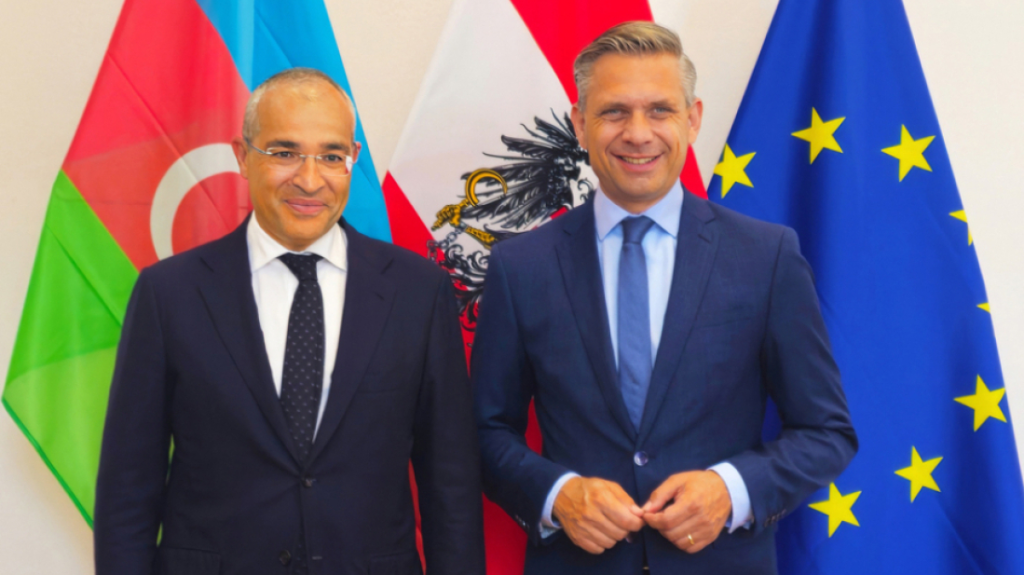Azerbaijan expands partnership with OPEC in a major step that is reshaping the country’s role in the global oil industry. This strategic alliance aims to stabilize oil prices, boost production efficiency, and enhance long-term cooperation with other oil-producing nations. The decision aligns with Azerbaijan’s energy ambitions and its vision for 2025 and beyond.
This announcement came during recent high-level discussions between Azerbaijan’s Ministry of Energy and the Organization of the Petroleum Exporting Countries (OPEC). Experts believe that this expanded partnership will strengthen the country’s influence in global energy policy and benefit its economy in multiple ways.
Stronger Ties for Greater Stability

One of the key outcomes as Azerbaijan expands partnership with OPEC is its commitment to long-term oil production coordination. Azerbaijan has been an active member of the OPEC+ agreement for several years. However, this renewed focus signals deeper involvement in decision-making processes that shape international oil markets.
The agreement outlines Azerbaijan’s participation in regular technical meetings and collaborative policy-making sessions. This allows the country to contribute more actively to collective decisions on oil output, supply adjustments, and price control strategies.
Azerbaijan’s Minister of Energy stated that “this expansion ensures mutual benefit and market stability. We are committed to supporting OPEC’s goals for balanced oil supply and fair pricing.”
5 Benefits of Azerbaijan’s Deeper Involvement with OPEC
Here are the five major benefits expected from the expanded partnership:
- Improved Oil Price Stability
OPEC’s coordinated production approach can reduce price volatility. As a committed partner, Azerbaijan gains protection against sudden global oil shocks. - Access to Advanced Oil Market Data
With closer integration, Azerbaijan will receive timely oil market insights and analysis from OPEC, helping it plan production and exports more efficiently. - Enhanced Investment Opportunities
Closer ties to OPEC members attract investors seeking energy sector stability. This move will likely bring in new foreign direct investment (FDI). - Technical Collaboration and Innovation
Azerbaijan can benefit from shared technologies, cleaner oil extraction methods, and sustainability programs led by other OPEC countries. - Stronger Political Influence
The country’s voice in global energy forums will become more influential, enhancing its geopolitical standing.
The Global Context of This Decision
As Azerbaijan expands partnership with OPEC, global energy demand continues to recover post-pandemic. Rising industrial activity, particularly in Asia, has reignited the need for stable oil supply chains. In this context, Azerbaijan’s closer bond with OPEC is seen as timely and strategic.
The partnership also reflects OPEC’s trust in Azerbaijan as a reliable oil-producing partner that aligns with its goals. While not a full member of OPEC, Azerbaijan is a core player in the OPEC+ alliance, which includes 10 non-OPEC nations working alongside traditional members like Saudi Arabia and Iraq.
Economic Growth and Energy Security
For Azerbaijan, this partnership is also about economic sustainability. The country heavily relies on oil and gas revenues, which make up more than 85% of its export income. By deepening its collaboration with OPEC, Azerbaijan ensures that its oil exports are protected from sudden market shifts and global crises.
According to analysts, this move supports Azerbaijan’s long-term energy strategy—”Vision 2030″—which aims to diversify income sources, modernize energy infrastructure, and reduce dependence on volatile oil prices.
Challenges Ahead Despite Optimism

Despite the benefits, there are challenges Azerbaijan must navigate. As Azerbaijan expands partnership with OPEC, it must also balance domestic production needs with OPEC’s production limits. At times, OPEC imposes output cuts to stabilize prices, which could limit Azerbaijan’s potential revenue in the short term.
Additionally, global discussions about transitioning to green energy and reducing fossil fuel dependency continue. Azerbaijan’s move to stick closely with OPEC may face criticism from environmental observers. However, the country maintains that oil will remain a key component of the world energy mix for at least the next two decades.
Future Outlook: What Comes Next?
The expanded partnership is already being seen in action. Joint working groups between Azerbaijan and OPEC are developing roadmaps to enhance data exchange, promote clean technology, and align energy forecasting tools. These initiatives are expected to increase transparency and build trust among market participants.
Furthermore, Azerbaijan is expected to host a regional energy summit later this year, in collaboration with OPEC officials. This summit will provide a platform to showcase new projects and policies resulting from the expanded alliance.
Conclusion
Azerbaijan expands partnership with OPEC, and the world is watching closely. This bold move shows Azerbaijan’s confidence in its energy sector and its commitment to playing a more prominent role on the global stage. As oil markets evolve and face new challenges, Azerbaijan’s decision to strengthen its OPEC ties appears timely, strategic, and forward-looking.
Whether it’s price stability, economic growth, or global influence—this partnership offers Azerbaijan a path to long-term energy security and success.
Also Read – China-Gulf Investment Flows: Barry Chan’s 5 Powerful Moves



